Description
ABSTRACT
Stay of Proceedings Pending Arbitration: An Appraisal of the Decision in Dr Charles Mekwunye v Lotus Capital
Festus Onyia*
The purpose of this article is to give an appraisal of the recent decision of the Court of Appeal in the case of Dr Charles Mekwunye v Lotus Capital Limited & Ors1 (‘Mekwunye v Lotus Capital’) on the issue of whether or not a party who is applying for a stay of proceedings pending reference of a dispute to arbitration is required to show that he has taken steps to commence arbitration. Prior to that decison, the Court of Appeal had held in several cases that an applicant for a stay of proceedings pending arbitration must demonstrate the steps that he has taken to commence arbitration. In the Mekwunye case, however, the Court of Appeal departed from its previous decisions on that issue and held that an applicant for a stay of proceedings pending arbitration does not need to show that he has taken steps to commence arbitration in order for the application to be granted. It is contended that the previous decisions of the Court of Appeal to the effect that an applicant for stay of proceedings pending arbitration should show the steps that he has taken to commence arbitration not only violate the principles of freedom of contract and party autonomy but also encourage a wanton breach of otherwise valid arbitration agreements.
Keywords: Commencement of arbitration, pending arbitration, stay of proceedings.
INTRODUCTION
Arbitration has become widely accepted and frequently used as an alternative dispute resolution mechanism for settlement of disputes arising from commercial transactions. There are various reasons why parties to commercial transactions might prefer to have any disputes that arise out of their contractual relationships resolved through arbitration rather than litigation, especially, in international transactions, in the home country of one of the parties2.
As often happens, when a dispute does arise under the underlying contract, one of the parties may decide to commence an action in court rather than submit the dispute to arbitration as agreed. Most modern arbitration laws contain provisions that empower the courts to, at the instance of the other party (ies) to the contract, stay further proceedings in the court action and to refer the parties to arbitration in accordance with the terms of the arbitration agreement signed by the parties. In Nigeria, the question of whether the party who applies for a stay of proceedings pending arbitration is required to show the steps that he has taken to commence arbitration has been the subject of controversy and conflicting decisions from the superior courts, particularly the Court of Appeal. Specifically, there is a line of judicial authorities to the effect that a party who is applying for a stay of proceedings pending arbitration should, beyond indicating (in the supporting affidavit) his willingness to do all things necessary to ensure the proper conduct of the arbitration, also indicate the steps that he has taken to actually set the arbitration proceedings in motion.
* Partner, Udo Udoma & Belo-Osagie; Lagos, Nigeria.
- Suit No: CA/L/1349/2016 delivered 20 April 2018.
- The idea of home country advantage readily brings to mind the entry in the Diary of Humphrey O’Sullivan to the effect that: ‘There is little use in going to law with the devil while the court is held in hell.’ Cited in William W Park, ‘When and Why Arbitration Matters’ in GM Beresford Hartwell (ed) Commercial Way to Justice (1997) 74.

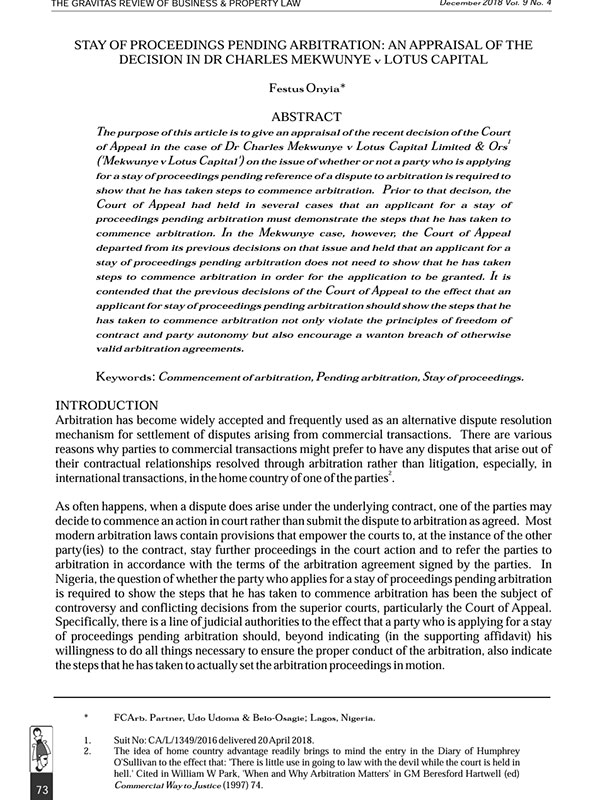
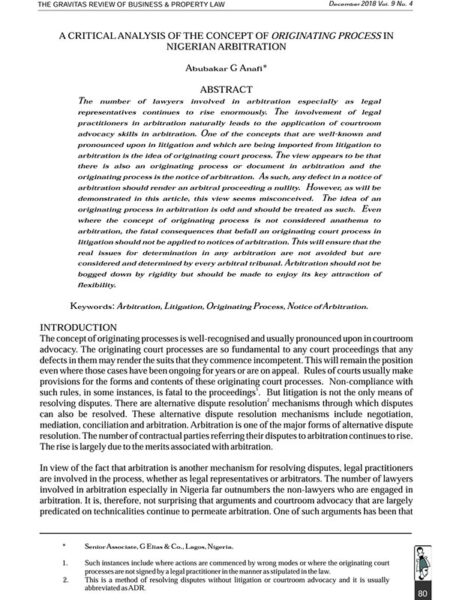
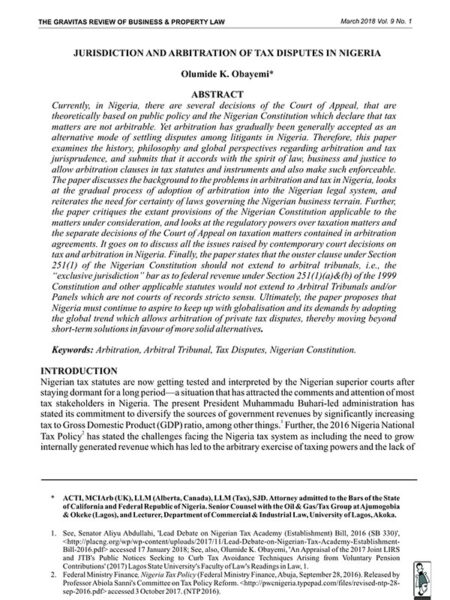
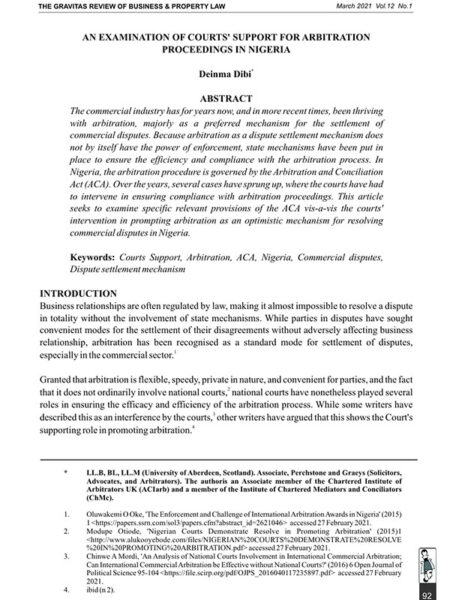
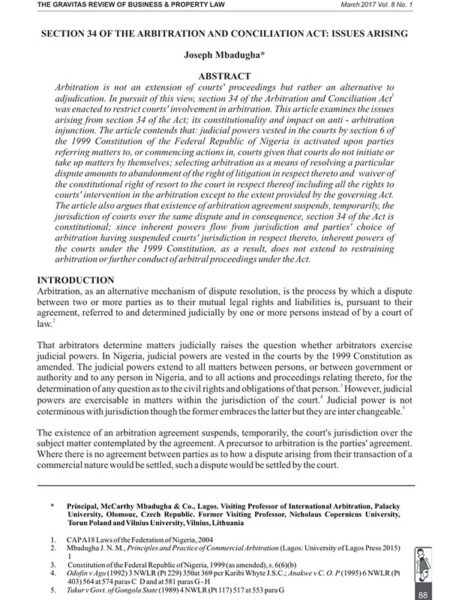


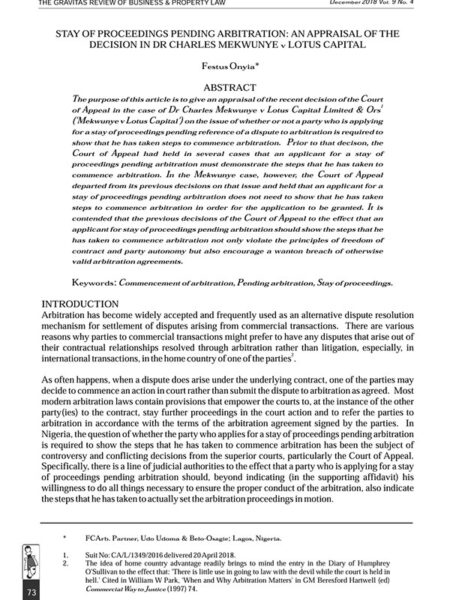
Reviews
There are no reviews yet.